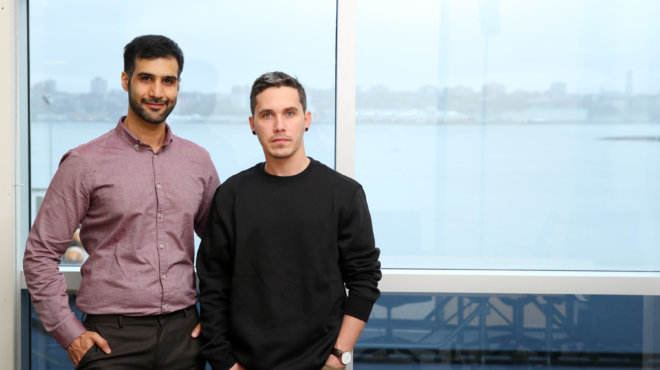Funding Options Increase and Diverse Startups Thrive
March 10, 2021
February developments in the Innovation District saw a boost to funding options for entrepreneurs and developments in the oceans, health, and environmental sectors.
Province Supports Sandpiper
The provincial government has contributed $5 million to Sandpiper Ventures, the first venture capital fund operated by the Atlantic Women’s Venture Fund.
The investment helps the fund launch its $20 million early-stage fund which will invest in ventures led by women, mainly in the Atlantic region.
“This investment by the province will attract additional capital to the fund and to the region from across the country,” Sandpiper Founding and Managing Partner Rhiannon Davies said in a statement.
The province also recently announced a new Venture Capital Tax Credit, which will offer investors a credit of 20 percent of their investment. The maximum eligible investment is $500,000.
Nova Scotia is also backing the initial fund of early-stage financing group, Concrete Ventures, and Funds 1 and 2 of the growth-stage fund Build Ventures.
The Rounds Grows in US
The Rounds, which operates social networks for physicians and pharmacists, is expanding in the U.S.
The company did well last year as Canadian physicians used the private social network to collaborate on healthcare challenges. Last fall, the venture closed a funding round of almost $1 million, largely through existing investors.
The venture (whose corporate name is Boondoc Technologies) is also collaborating with Dalhousie University researcher, Christine Chambers, on a channel called Solutions for Kids in Pain, or SKIP.
In 2019, The Rounds provided more than $500,000 to extend the reach of SKIP and it has now formed an online community of 1,500 healthcare providers.
So far in this fiscal year (which began last September), company revenue is up 63 percent over the same period last year.
The company is expecting revenues for fiscal 2021 to rise 300 percent and has increased staff from 14 to 29 people in 10 months. New employees include Holly Bond, previously the Director of Investment Attraction at Halifax Partnership, who is now Chief Strategy Officer and in charge of expansion into the States.
“The big thing for us in 2021 is launching in the U.S.,” CEO Tim Rice told Entrevestor. “We're already working with [the American Medical Association] and the roll out is utilizing their network and our network.”
Alentic Seeks Funds to Fight COVID
Alentic Microscience, whose handheld diagnostic device is used on the International Space Station, is raising money to adapt its product for the battle against COVID-19.
Alentic’s imaging device easily reads patients’ results at the point of care, using just a drop of blood. The device allows the Canadian Space Agency to monitor astronauts’ immune systems in real-time.
The company has created tests that can identify which COVID-19 patients face the highest danger and require medication. People who suffer most from COVID often show a decline in white blood cells and an increase in circulating levels of various proteins.
“COVID has been consequential as it’s affected the way we’ve worked and dealt with suppliers,”
Founder and CEO Alan Fine told Entrevestor. “It’s also presented some urgent and important needs, such as the need for diagnostic tests associated with COVID and our technology can be very valuable in that regard.”
The venture is currently raising a bridge funding round and will try to raise a Series A round later this year. It recently received a $3 million loan from the Atlantic Canada Opportunities Agency.
The technology is based on Fine’s work as a research professor at Dalhousie University.
Alentic is also examining whether its technology can fight COVID by detecting antibodies in the blood and by allowing quick and affordable readings from nasal swabs.
Arolytics Raises Funds to Track Methane Emissions
Arolytics, a maker of software that helps oil and gas companies track their methane emissions, has raised $710,000 in equity financing.
The company, which is also based in Calgary, recently won Startup TNT’s Calgary Investment Summit. The venture also received investment from M-Tech Innovations and Metiquity Ventures. It won $25,000 in investment in the May 2019 Volta Cohort pitching competition.
Arolytics was formed in 2018 after Canada, the U.S. and Mexico required fossil fuel producers to track their methane emissions and file reports with government.
“With over $1 billion in federal and provincial government funding committed to emissions reduction in 2020, Arolytics is positioned to be a market leader in helping oil and gas firms meet reduction targets,” the company said in a statement.
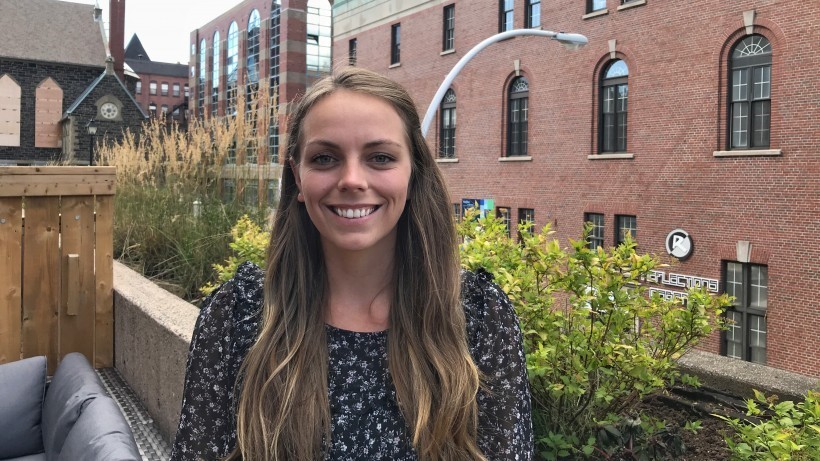
Ocean Supercluster Project Boosts Aquaculture
Canada’s Ocean Supercluster announced a $27 million project to boost the aquaculture industry through data analytics and better connectivity.
The Integrated Operations and Real-Time Analytics Project will help collect and analyze data on aquaculture facilities and build connections between facilities and processing plants.
“This has been a challenging year for ocean sectors, but today’s project and the almost 50 others we have approved to date point to the incredible opportunity in oceans for economic recovery and long-term, sustainable growth,” said Supercluster CEO Kendra MacDonald in a statement.
The Ocean Supercluster is one of five national innovation “superclusters” in various technologies. In 2018, the federal government committed to spending $918 million via the superclusters over five years. Other partners, mainly private companies, will match that with $1.09 billion in spending.
Partners in the new project include Innovasea and High-Tech Communications. The Supercluster will provide around $12 million with the rest of the money coming from project partners.
Marine Testing Platform Developed at COVE
Stella Maris, a multi-user marine testing platform, is being created at the Centre for Ocean Ventures and Entrepreneurship.
“With the Stella Maris, COVE companies are developing advanced, high-value technologies that will reach global markets,” Melanie Nadeau, COVE CEO, said in a statement.
She said the platform makes visible the opportunities within the blue economy, which is driven by sustainable ocean resources, and contributes around $32 billion to the value of Canada’s goods and services each year.
The platform is supported by a $1 million grant from the Atlantic Canada Opportunities Agency. The province is providing $325,000, including $60,000 from Nova Scotia Business Inc. and $15,000 from Innovacorp.
ROCarbon Labs and NSCC Work on IKEA’s Excess Power
ROCarbon Labs, an energy management company, is working with students at Nova Scotia Community College to help IKEA Canada decide what to do with the extra solar power produced at its Dartmouth location.
The retail outlet is the Swedish company’s most sustainable Canadian location and frequently produces more solar energy than it uses, but it’s unable to return the extra power to the grid.
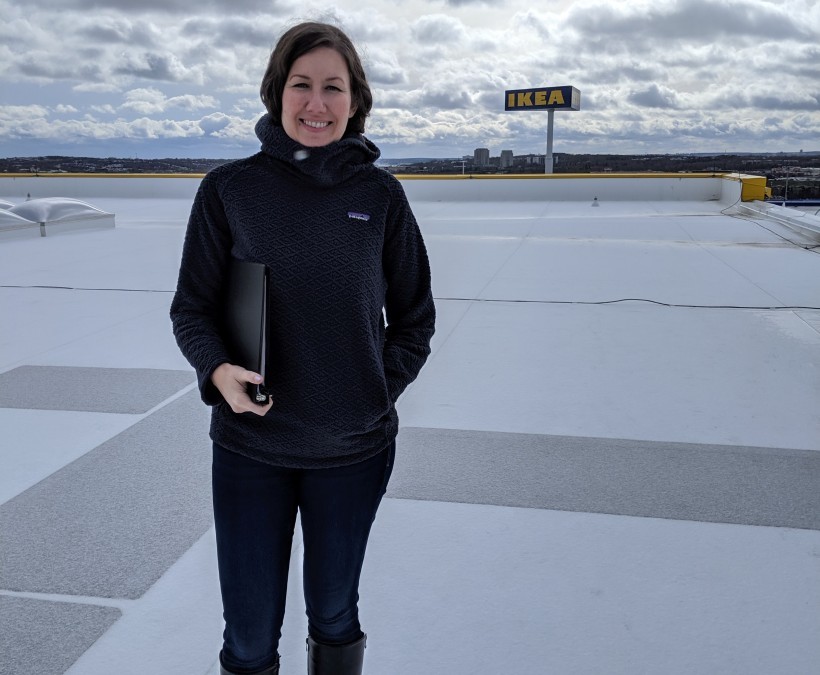
“The full data set will enable NSCC students to identify and suggest carbon-reducing opportunities within the building, while also highlighting methods to eliminate solar curtailment,” said ROCarbon’s CEO Megan McCarthy.
Spring Loaded Launches Back Brace
Spring Loaded Technology, a maker of sophisticated knee braces, launched Lumbrella, a customizable back brace.
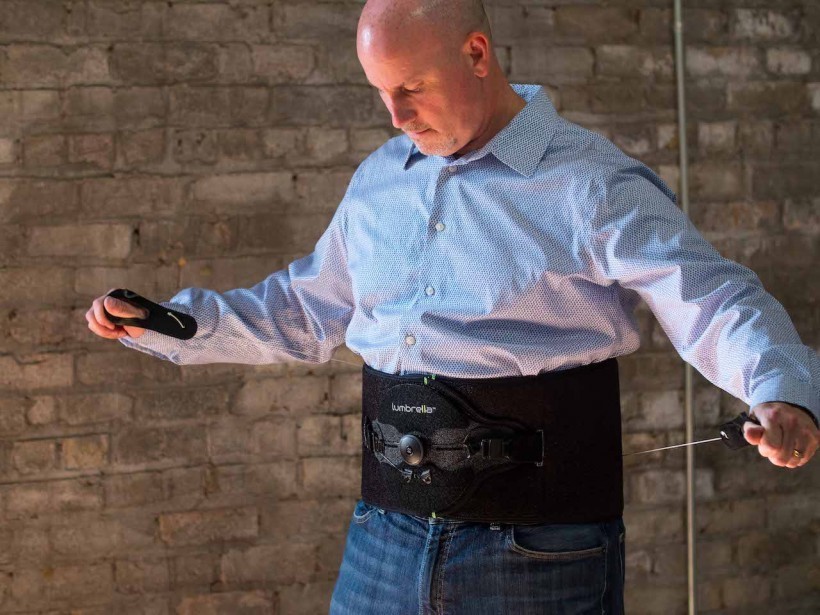
The company said Lumbrella offers medical-grade spinal decompression and pain relief. The device is adjustable and adapts as a person stands, sits, and moves.
It’s estimated that 50 percent of Canadians suffered lower back pain over the past six months, the company said.
“One of the most important things you can do to reduce back pain is to keep moving,” said Spring Loaded President and CEO Chris Cowper-Smith in a statement.
Spring Loaded Technology already produces the Levitation knee brace, which stabilizes the knee joint and adds power to its movements.
Talkatoo Makes Google for Startups Accelerator
Talkatoo is one of four Canadian startups named to the first cohort of the Google for Startups Accelerator: Voice AI.
The 10-week accelerator offers participants mentorship and technical support, with a focus on customer acquisition, product design, and leadership development.
The company has created a Software-as-a-Service voice-recognition product that helps veterinary surgeons dictate notes and have them immediately transcribed.
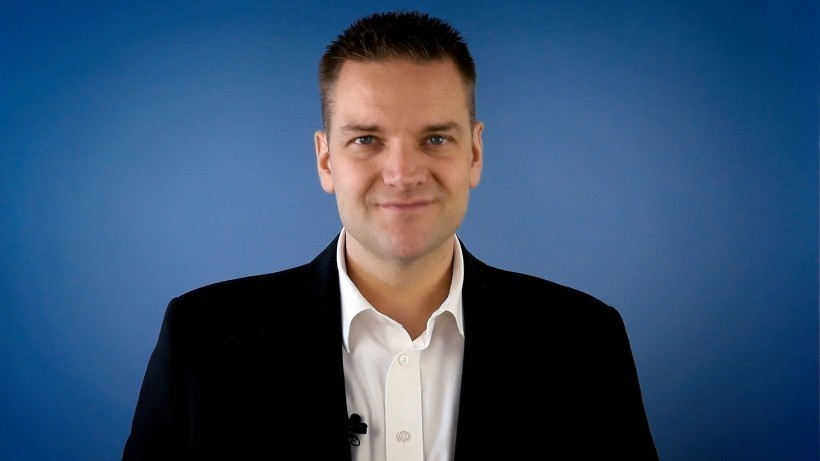
Last summer, Talkatoo raised $700,000 in equity funding in a round led by Concrete Ventures.
Clever Fruit Directors Broaden Network
Clever Fruit Products named new directors with expertise and connections to its board. The venture has raised $400,000 from investors, and added more than $500,000 in non-dilutive financing.
“The timing is ideal as Clever prepares to launch its first fermented supplement product, a fermented wild blueberry ingredient,” said Clever Fruit President Liam Tayler in a statement
Clever Fruit started as a juice maker then discovered a process that dries fruits into a powder that can be added to foods. Animal tests showed that its product cuts bad cholesterols by 40 percent. The company expects to launch the product in March or April.
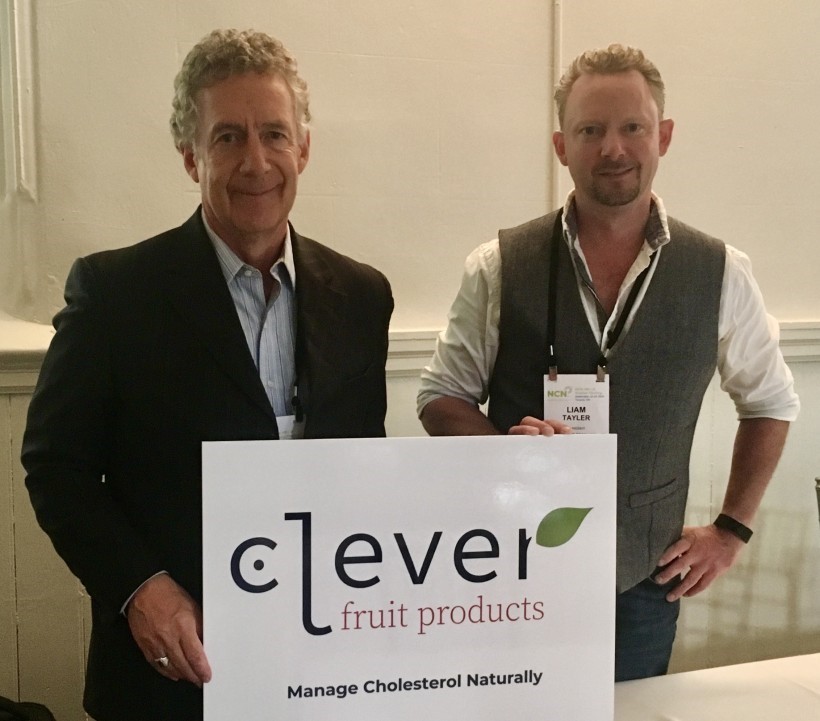
The company will also begin the final pre-clinical trial of its natural cholesterol management ingredient. New board member Dean Mosca has connected the company with big, global manufacturers of natural nutrition products who wish to secure supply for their food and supplement interests.
“The fermentation of fruit polyphenols creates postbiotics that have shown direct immunomodulatory and clinically relevant effects for a range of diseases for use in improving overall health.” said new board member Lorna Vanderhaeghe.
ACOA Helps Local Companies Launch or Grow Operations
The Atlantic Canada Opportunities Agency is lending $1.3 million to three ventures to help them launch or expand their work, including a company that recently moved from Texas.
Global Spatial Technology Solutions received $500,000 to help with its new satellite surveillance features, which include the ability to track COVID-19 through maritime points of entry.
The company, which raised $2 million two years ago, collects data from satellites and terrestrial sources. AI can analyze weather patterns, ocean conditions and maritime traffic to help crews plot the routes that create the lowest greenhouse gas emissions.
REF TEK Systems received a loan of $420,375 to help the company boost production and commercialize its seismic recording systems, including a recorder which assesses the impact of earthquakes on buildings, dams and bridges.
“By moving to Nova Scotia (from Texas), we gave REF TEK access to the highly skilled technical staff and positive business environment that exists here,” said CEO Derek Inglis.
Sensor Technology is borrowing $393,367 to buy new equipment to increase its capacity to manufacture acoustic products for use in the energy, defense and oceanography sectors.
Dal Researchers Examine Impact of Physical Inactivity on Health
Dalhousie researchers are looking into the long-term impacts of physical inactivity on health, Dal News reported.
The federal government is investing $3.34 million in the study, which will support eight teams of researchers, and is a partnership between the Canadian Institutes of Health Research, the Canadian Frailty Network, and the Canadian Space Agency.
Olga Theou, a Canada Research Chair and assistant professor in the School of Physiotherapy, will lead researchers looking at the impact of inactivity on frailty and frailty-related biological markers in people aged between 55 and 65. They will assess differences in frailty between those who exercise during bed rest over 14 days and those who do not. The resulting research may also protect the health of astronauts in space.
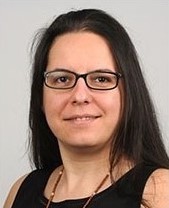
“This work can help us understand if exercise during bed rest will attenuate widespread deficit accumulation during spaceflight and during periods of inactivity amongst older adults,” Dr.Theou said.
MRI Simulator Helps Young Patients
Children can find the experience of undergoing an MRI (Magnetic Resonance Imaging) scan upsetting due to the confined space and unfamiliar sounds the machines make.
A novel MRI simulator at the IWK Health Centre has been created to help relax young patients, Dal News reported.
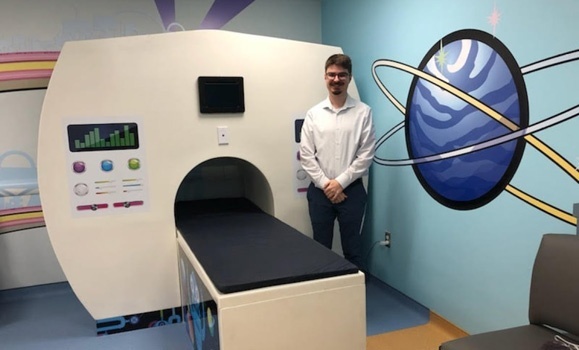
Designed by Dalhousie engineering graduates, the simulator is equipped with features that make it feel, sound and look realistic.
Jonathan Betteridge, one of the creators, said the simulator will help children relax, and that they will hopefully require fewer sedatives.
“It was one of the projects that seemed like it would actually be able to make an immediate impact on the community,” he told Dal News.
Guild Struggles to Cope with Demand
Guild Solutions is working on a restructuring and debt financing in order to hire more staff to cope with demand.
The company, a maker of software for professional associations, could have 50 people on payroll by the end of this year. Its recent sales have surged so much the company only has the ability to install systems that it has already sold.
The challenge is to recruit staff in the region’s tight market for tech talent and the company is recruiting nationally and globally.
“We spend more money marketing for employees now than we do for customers,” Founder and CEO Colin Gourlay told Entrevestor.
“The toughest [discipline to hire] is always software developers, but we’ve been having challenges hiring support personnel.”
Gourlay said an independent market analysis showed the venture has a total addressable market of $3.6 billion in Canada, the U.S. and the U.K. alone, and about half that market hasn’t been tapped yet.
“We’re just going to hire as much as we can to keep up with demand,” he said.
Entrepreneurs Named Globe and Mail Changemakers
Two local entrepreneurs were named by the Globe and Mail to its inaugural list of 50 Canadian Changemakers.
As a Black Nova Scotian, Charles Milton said the province needs to do more to support Black entrepreneurs.
“From my perspective, I feel as if Nova Scotia is not an environment that makes members of the Black community feel like they can be successful in this area,” Milton, the Co-Founder and CEO of Bursity told Entrevestor. Bursity helps post-secondary students from racialized communities find and apply for bursaries or scholarships.
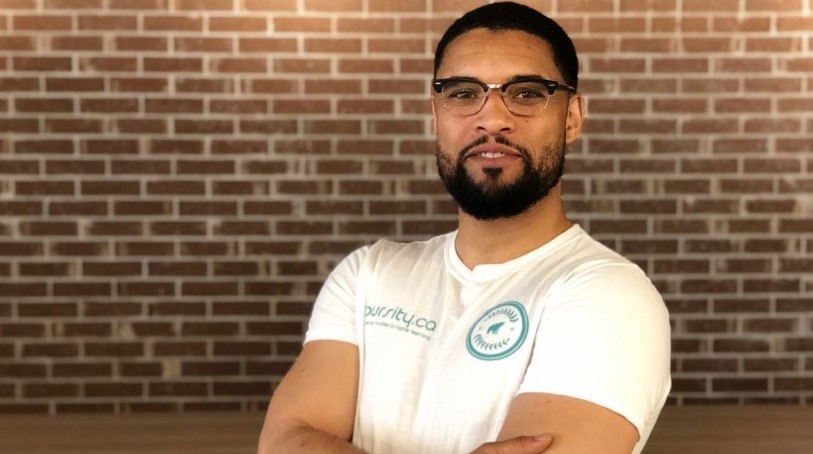
The federal government and eight financial institutions recently said they will put up $221 million to assist Black-owned businesses.
“Though things are looking better for Canadian founders with the $221 million being released, we still have to see where that will go,” Milton said.
Mathew Zimola, Co-Founder and CEO of ReelData AI was named to the list for his leadership of the company which uses artificial intelligence in on-land aquaculture.
The company was founded by Dalhousie University computer science grads Zimola and Hossein Salimian, and has created software that assesses video from aquaculture tanks to gauge the health and biomass of fish stock, and ensure the fish are receiving the correct amount of food.
